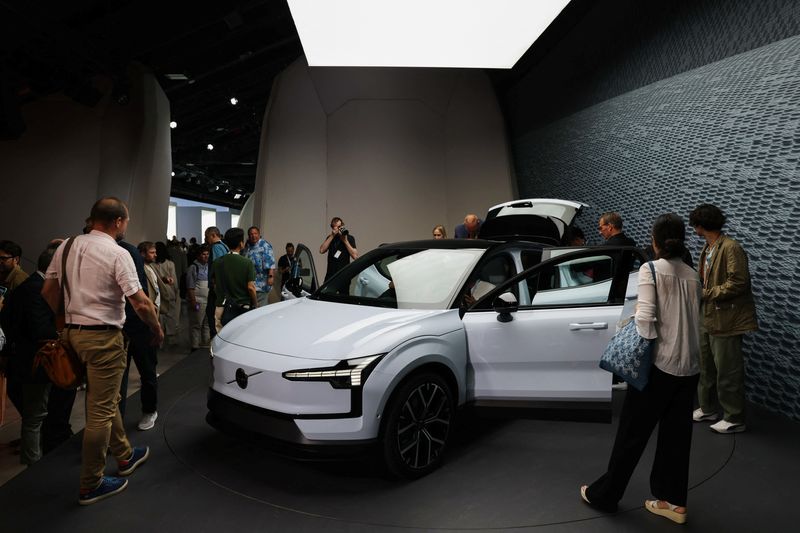Investing.com’s stocks of the week
By Louise Rasmussen
COPENHAGEN (Reuters) - Volvo (OTC:VLVLY) Cars' sales fell 2% in February from a year earlier to 50,315 cars, the Sweden-based group said on Tuesday, pointing to the timing of the Lunar New Year in China as the main explanation for the decline.
Shares in Volvo Cars fell 3.5% by 0832 GMT versus a 0.3% drop in Sweden's benchmark index.
Volvo Cars, majority-owned by China's Geely Holding , said in a statement sales of fully electric cars were up 14% and accounted for 22% of all sales globally in the month.
The company in January said it remained confident of "tremendous growth" in the electric vehicles market. It expects EVs to account for half of its sales volume by mid-decade and to sell only EVs by 2030.
In China, sales were down 39% compared to the same month last year due to the timing of the Lunar New Year, which this year mainly took place in February, according to Volvo Cars.
Sales in Europe grew 26%, with sales of fully electric cars increasing 31% from a year ago. At the same time, sales in the United States fell 7%, dragged down by a 63% decline in the sales of fully electric cars.
Some analysts have questioned Volvo's heavy focus on electric cars, arguing the overall EV market is underperforming and subject to strong competition from Tesla (NASDAQ:TSLA).
Volvo in 2023 sold a record 709,000 cars, up 15% and raising the group's annual revenue by 21% to 399 billion Swedish crowns. Fully electric cars represented 16% of its global sales.
Volvo Cars' share price has risen by 10% year to date but is down 30% in the last 12 months.
(This story has been corrected to change the company identifier to GEELY.UL in paragraph 3)
